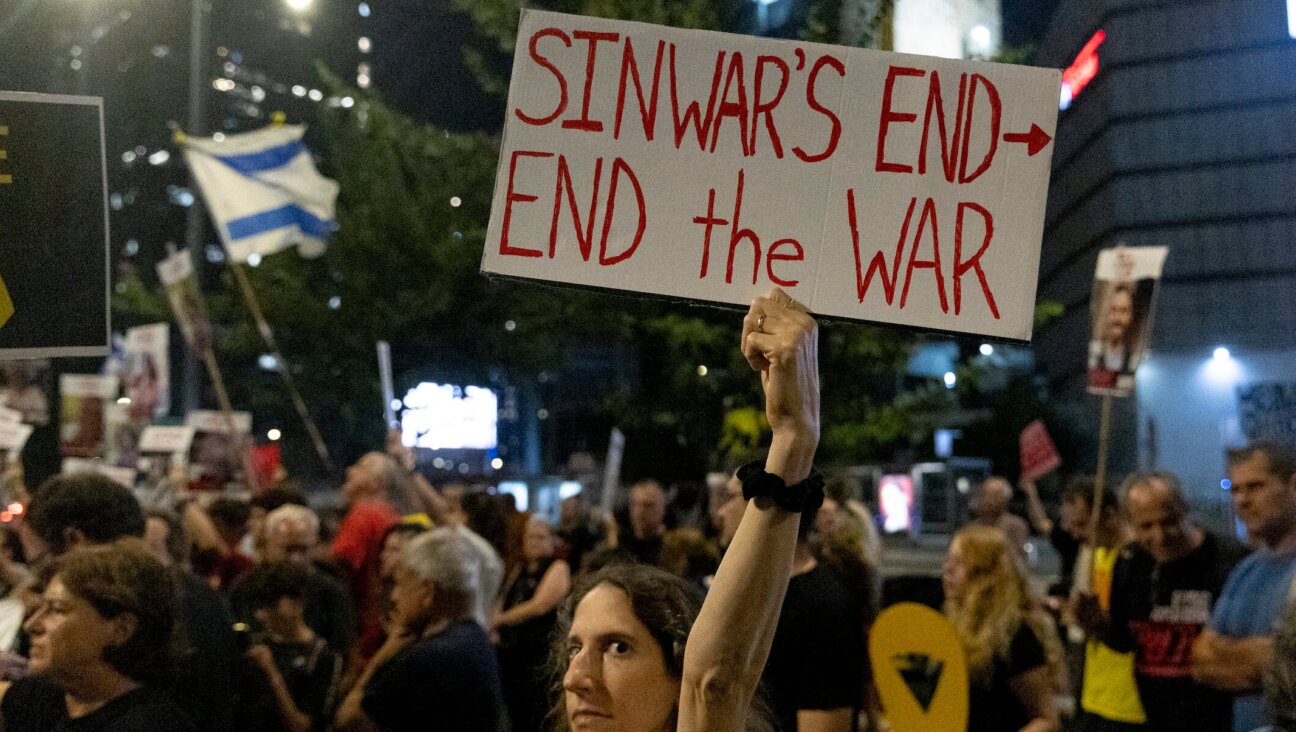British Professors Approve Israel Boycott
Britain’s largest teachers union voted this week to press forward with a proposal to boycott Israeli academic institutions, setting the stage for a bitter struggle to reverse the decision.
The University and College Union, representing more than 120,000 college-level educators, voted May 30 to pass a motion imploring its branches to circulate and discuss a Palestinian call for boycott of Israeli academics and universities.
At the same time, a professor in America was painting himself as the victim of an Israeli university’s own version of political blackballing.
Yigal Arens, a University of Southern California computer science professor who is an outspoken critic of Israel, said this week that his invitation to an upcoming conference at Ben-Gurion University of the Negev was rescinded as a result of what he described as his anti-Zionist views. The NATO-sponsored conference, set to take place June 4-5, is being billed as an apolitical event that will explore the role of the Internet in combating terrorism.
The accusation from Arens, left-wing son of right-wing former Israeli defense minister Moshe Arens, comes as America’s mainstream Jewish community is mobilizing to defeat the academic boycott.
Alan Dershowitz, Harvard Law School professor and prominent pro-Israel advocate, said that to protest the vote he will attempt to mobilize 1,000 American university professors of diverse backgrounds to join him in declaring themselves honorary Israeli professors.
“I now consider myself an Israeli professor, and I will act as if I am an Israeli professor,” Dershowitz said. “If they boycott Israel,” he added, “they’re boycotting me.”
Another recent effort to exert political pressure on the Jewish state came in April, when Britain’s 40,000-member National Union of Journalists adopted a resolution calling for a boycott of Israeli goods.
Arens and his left-wing supporters say that his story undercuts a fundamental tenet of the anti-boycott movement, which holds that Israeli academic institutions are an unfair target because they are not political in nature. But anti-boycott activists say that even if Arens’s explanation of the incident is accurate, it does not justify ostracizing thousands of professors on the basis of their nationality.
“Even if one is troubled by the idea that one could be invited or disinvited because of their politics, it’s very different than saying that someone should be barred because they’re Israeli,” said Kenneth Stern, the American Jewish Committee’s director on antisemitism and extremism. “One thing is an error of judgment,” he said, “and the other is tarring a whole society.”
Arens told the Forward that in early January he received a call from Paul Kantor, a library and information science professor at Rutgers University, inviting him to participate in an international conference, “Security Informatics and Terrorism — Patrolling the Web.” The conference was being co-organized by Kantor and Ben-Gurion University professor Bracha Shapira.
According to Arens, he expressed concern to Kantor that he be treated with respect, as he felt snubbed while attending a conference in the Jewish state several years ago.
A week after their initial conversation, Arens said, Kantor rescinded the invitation, saying that Israeli government officials who would be at the conference were uncomfortable with the idea of his participation. Arens, the director of both the Intelligent Systems Division at USC’s Information Sciences Institute and the Digital Government Research Center, has drawn particular ire in Israel, given his father’s standing as a long-time Likud party politician.
The alleged snub of Arens was reported on the left-wing Jewish blog Tikun Olam.
When the 55-year-old USC professor sent an e-mail to Shapira asking why he was no longer welcome at the conference, Shapira responded, “Prof. Kantor exceeded his authority in extending the invitation without full consultation with the conference organizers. We sincerely regret the embarrassment.”
Shapira did not return a phone call from the Forward seeking comment.
In an e-mail to the Forward, Kantor disputed Arens’s characterization of the incident. “I am not sure that my error in extending an invitation should be described as a ‘disinvitation,’” he wrote.
Kantor did not respond to follow-up questions.
Meanwhile, in Britain, a coalition of Jewish groups united to condemn the union’s vote.
“The UCU boycott motion is an assault on academic freedom,” said Jeremy Newmark, the chief executive of Britain’s Jewish leadership council. “While the vast majority of academics do not support a boycott, the decision damages the credibility of British academia as a whole.”
A message from our Publisher & CEO Rachel Fishman Feddersen

I hope you appreciated this article. Before you go, I’d like to ask you to please support the Forward’s award-winning, nonprofit journalism during this critical time.
We’ve set a goal to raise $260,000 by December 31. That’s an ambitious goal, but one that will give us the resources we need to invest in the high quality news, opinion, analysis and cultural coverage that isn’t available anywhere else.
If you feel inspired to make an impact, now is the time to give something back. Join us as a member at your most generous level.
— Rachel Fishman Feddersen, Publisher and CEO






















